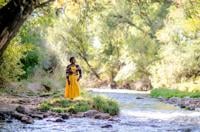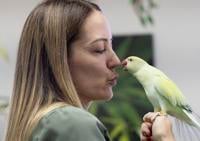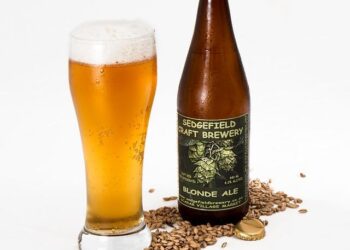Hartman and her mother journeyed here in 2005, following a destructive, bitter civil war that ended in 2003 in her homeland.
ﻗWe were trying to escape poverty and oppression and build a better life,ﻗ she said.
The mother and daughter did not know anyone in the Pikes Peak region, nor were they able to choose where they would make their new home; a nonprofit agency that rescues and transports refugees selected Colorado Springs.
Living in the United States was exciting at first, as things were working out, and Hartman often sought refuge in her room to journal about her new experiences.
Raw, honest and emotional details emerge as her life did not unfold like a glamorous movie. A few years after immigrating, Hartmanﻗs mother developed a mental illness and could no longer care for her young child.
She eventually moved back to Africa, leaving her daughter behind in a foreign country with limited English communication skills and a level of homesickness she didnﻗt think was possible.
ﻗMissing my family back home was the hardest thing,ﻗ Hartman said.
Levia Hartman poses for a portrait last week near the water in Fountain Creek Regional Park. Hartman and her mother moved here in 2005 when she was ﻗ9-ish,ﻗ after a destructive, bitter civil war in Liberia, West Africa. She published a book in 2020 about her experiences, ﻗCrown Up: From Immigrant to American Dream.ﻗ She said the local park reminds her of Africa.
Parker Seibold, The Gazette
In the tender preteen years, Hartman entered the child welfare system and was paraded from foster home to foster home.
ﻗBeing an immigrant, thatﻗs a negative. Being a foster kid, thatﻗs another negative,ﻗ she said. ﻗPeople are like, ﻗYou must have been a bad kid.ﻗ I went into foster homes because of certain situationsﻗﺡ ﻗ not behavior.
The stigma overshadowed her positive, joyful nature, and she found it difficult to connect and build a relationship with the various foster families.
The culture was different. The food was different; no more of her favorite fufu vegetable dish or fish-and-peanut-butter soup. American clothing was not as bright and flowing. Hartmanﻗs accent seemed unusual, with her first language being Krahn.
ﻗPeople look at me like ﻗWhoa ﻗ why do you dress like that?ﻗﻗ
Your morning rundown of the latest news from Colorado Springs and around the country overnight and the stories to follow throughout the day delivered to your inbox each evening.
Success! Thank you for subscribing to our newsletter.
Depression set in, she became the target of a sexual predator, and she had thoughts of suicideﺡ ﻗ all of which sadly are not uncommon for foster children, said Brian Newsome, executive director of Fostering Hope. The Colorado Springs nonprofit provides guidance, companionship and assistance to foster families and foster children, including Hartman.
ﻗIt was like being thrown into a jungle,ﻗ Hartman said. ﻗIﻗm always in survival mode. I donﻗt trust relationships with people.ﻗ
That remains the case for many foster children today, as she discusses in her memoir.
ﻗSome of the kids need a mentor, theyﻗre struggling; some can trust and learn to thrive,ﻗ Hartman said.
From her years spent in foster care and now as a volunteer with Fostering Hope, Hartman is an anomaly. Nationally, studies show that children in foster care who age out of the system at 18 to 21 years old are more likely to end up in prison than earn a high school diploma. Three of 4 young women who have been in foster care become pregnant by age 21.
And just 3% to 4% earn a college degree by age 24, according to the National Foster Youth Institute.
Thatﻗs a class Hartman is proud to be in.
With financing assistance from Fostering Hope, she earned a degree from Pikes Peak State College and now, in her early 30s, she works remotely as a customer service representative for an insurance company. And sheﻗs married to the love of her life, Kyle, an information technology specialist.
The hardships and barriers Hartman endured were significant, Newsome said.
ﻗSheﻗs overcome a lot and done so really successfully,ﻗ he said. ﻗYou go through the kind of adversity that many of these young adults go through, and you could hang onto that in a negative, bitter way, but Levia has used it for good and is very determined to use these experiences to build up others.ﻗ
In fact, Hartman is the first Fostering Hope client since its founding in 2006 to have bought her own home, Newsome said.
ﻗIt was a milestone we were all excited about and celebrated,ﻗ he said, adding that the agency continues to help her navigate issues related to home ownership.
Hartman hopes the words and wisdom in her bookﺡ ﻗﺡ the writing of which helped her inner wounds healﺡ ﻗ also help others to better traverse lifeﻗs struggles with perseverance and hope.ﺡ ﺡ
Hartman became a naturalized citizen in 2020, in what she describes as a nerve-wracking yet exciting process. Today, sheﻗs assimilated and proud to an all-American woman who has her sights set on accomplishing much more.
ﻗThis is my home,ﻗ she said. ﻗI’m changing lives one story at a time, is my motto.ﻗ
She encourages other immigrants to seek legalization as soon they can because she said it leads to true freedom and more opportunities to realize the American dream.
She also hopes that people treat immigrants with respect and kindness, as ﻗWe are all people. We all want love.ﻗ
Hartman frequently thinks about visiting Africa, but said she has to save up money to travel there.
ﻗSheﻗs a real success story,ﻗ Newsome said. ﻗWhen you look at the national statistics for kids who age out of foster care, the fact that sheﻗs married, written a book, bought her own home and is doing so wellﺡ ﻗ thatﻗs a rare experience.ﻗ
Source link : http://www.bing.com/news/apiclick.aspx?ref=FexRss&aid=&tid=6710cf80bc0343169ea001a2ce6b19a3&url=https%3A%2F%2Fgazette.com%2Fnews%2Flocal%2Fliberian-immigrant-planted-in-colorado-springs-details-the-good-and-bad-of-chasing-the-american%2Farticle_d17f1360-8be1-11ef-9c7f-27cb9a9153d6.html&c=8410289432340166773&mkt=en-us
Author :
Publish date : 2024-10-16 10:15:00
Copyright for syndicated content belongs to the linked Source.


















